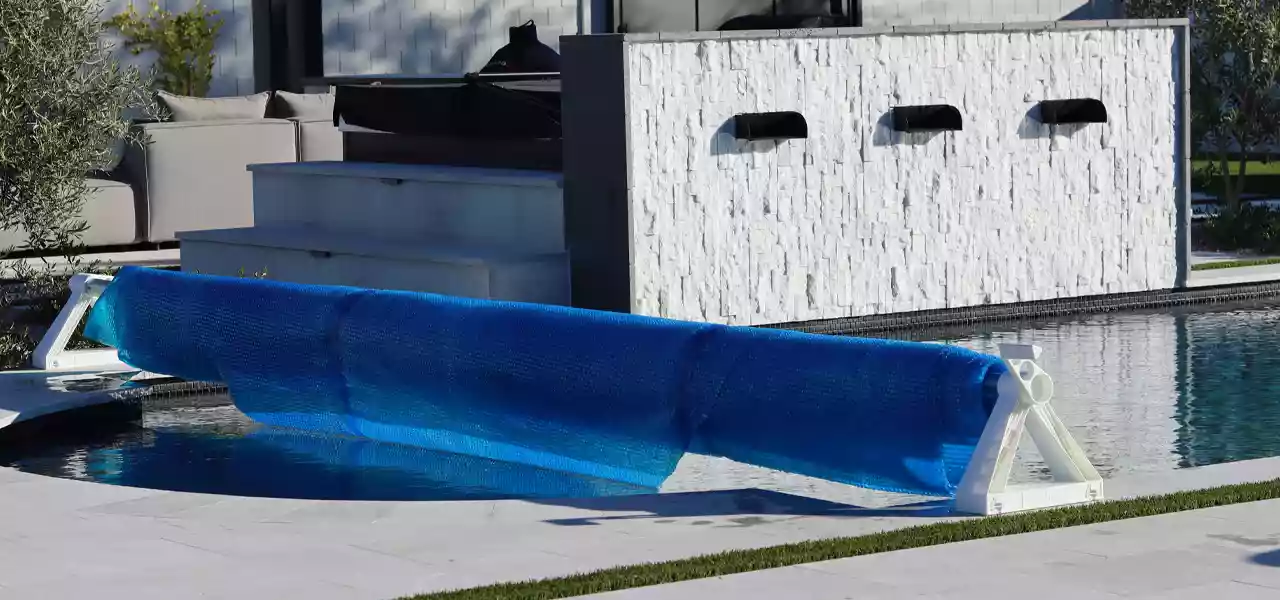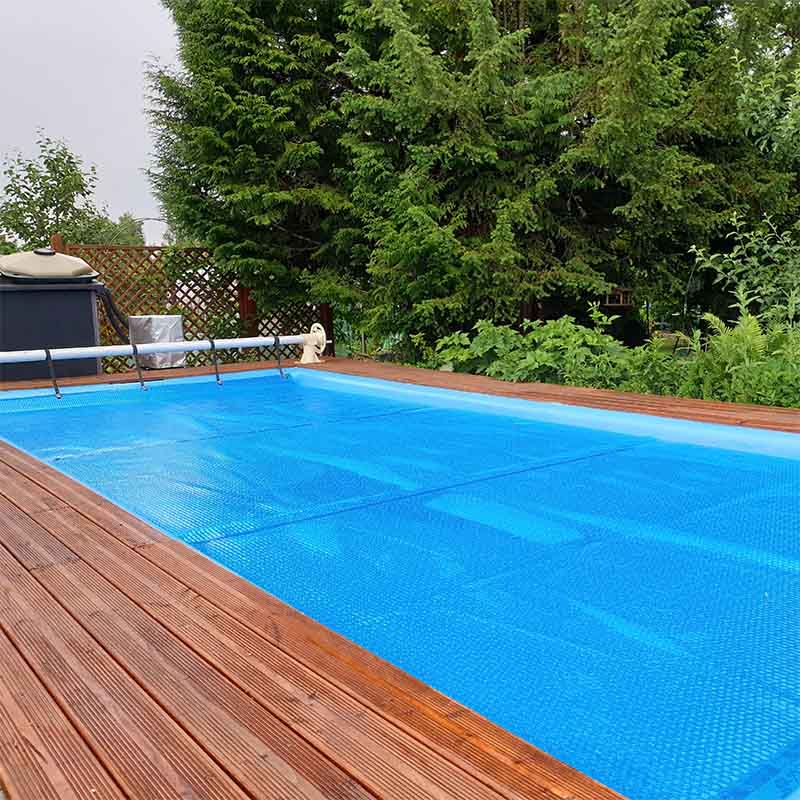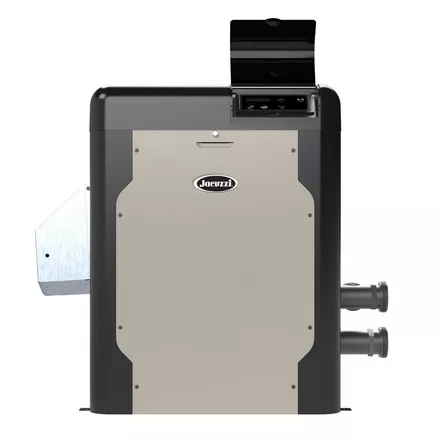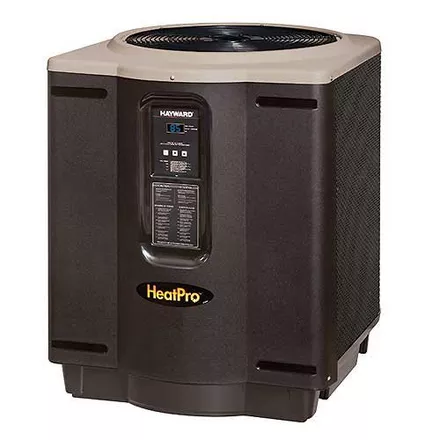10% Off Sitewide Sale + Free Shipping No Minimum*

How to Extend Your Pool Season
Are you tired of bidding farewell to your beloved pool at the end of every summer? Want to dive in just a little bit earlier in the spring? Do you wish there was a way to extend your pool season just a bit longer? Well, you're in luck! In this article, we cover a few of the best ways to keep your pool warm, so you can enjoy your backyard oasis as long as possible.
Bring the Heat
Achieving and maintaining the perfect water temperature is the key to enjoying your pool year-round. Knowing which heating method is best for your pool, and location, is the most important part of extending your pool season. So let's dive into the different ways you can bring the heat, even in the cold.
Solar Heating
The most affordable and environmentally-friendly way to heat your pool and extend your pool season is by using solar heat. There are three types of solar pool heating: solar covers and rings, liquid solar covers, and solar heaters. While each method utilizes the sun's natural warmth to heat your pool, they vary slightly in terms of effectiveness.
Solar Covers
If you've ever seen a solar cover on a pool, you may have thought to yourself, "Why is there bubble wrap on that pool?" That's because solar pool covers look exactly like giant sheets of bubble wrap! But unfortunately, you definitely shouldn't pop the bubbles on a solar cover, as they serve a very important purpose.

Solar covers act as a barrier between the pool water and the sun's UV rays, preventing heat loss and conserving energy. As the sun's rays hit the cover, the bubbles, which lay on top of the water, absorb and retain the heat energy. This solar heat is then transferred into the pool water and can warm the pool by up to 10°F. Using a solar cover in conjunction with a heater or heat pump is a great way to save energy costs, as the solar cover will retain the warmth generated by the heaters.
Additionally, solar covers can reduce pool water evaporation by up to 95% by blocking the sun from penetrating the water. Solar pool covers come in multiple sizes and colors to fit the needs of any pool, and can be removed easily with the help of a reel. They are an easy and cost-effective way to maintain your pool's temperature if you live in a sunny, warm climate.
Solar rings
Made of UV-resistant vinyl, these large, round disks work similarly to solar covers by absorbing heat from the sun and blocking harmful UV rays. Solar rings are 5 feet in diameter and attach to other rings via clips located around the ring's perimeter. This feature allows you to connect as many rings as you need, to ensure adequate pool coverage.
Solar heaters
Solar heating is an environmentally friendly and cost-effective option for extending your pool season, especially if you have an above ground pool. This system harnesses the sun's energy to heat the pool water, making it a sustainable alternative to traditional heating methods. Solar panels, typically installed on the roof or ground adjacent to the pool, capture the sun's heat and transfer it to the water. Although the initial investment may be higher than other options, solar heating can significantly reduce your monthly energy bills in the long run.
One of the advantages of solar heating is its simplicity. Once installed, the system operates automatically, harnessing the sun's energy to heat your pool. It also requires minimal maintenance and typically has a long lifespan. However, it's important to note that solar heating depends on sunlight availability, so it won't be as effective during cloudy weather or cold winter months. Installing a backup heating system, such as a heat pump or gas heater, can reduce this limitation and ensure a consistent water temperature throughout the year.
Liquid solar cover
This innovative liquid chemical forms a thin layer on the surface of your pool water that traps heat and reduces evaporation. While using a liquid solar cover is not as effective as using an actual solar cover, this product can reduce evaporation by up to 50% and is a great way to protect chemicals like chlorine. Plus, it's simple to use! Just pour the recommended dose into your pool's skimmer once a week for optimal results.
Heaters
Installing a gas pool heater or electric heat pump is the most efficient and reliable ways to maintain a comfortable water temperature during the cooler months.
Gas heater

Reliable and efficient, gas heaters are ideal for colder climates or when you need to raise the water temperature rapidly. These heaters burn either natural gas or propane to generate heat, and can increase the temperature o your pool by 30°F, allowing you to enjoy your pool even in chilly weather.
One of the advantages of gas heaters is their versatility. They can maintain a stable water temperature regardless of external conditions, making them suitable for year-round use. Gas heaters also tend to have a lower upfront cost compared to other heating options, making them more accessible to a wider range of pool owners. However, it's important to consider the ongoing fuel costs associated with gas heaters, as they can be higher compared to alternative heating methods.
Heat pumps

Heat pumps extract heat from the surrounding air and transfer it to the pool water. Unlike gas heaters, which burn fuel to generate heat, heat pumps use electricity to operate, making them more energy-efficient, environmentally-friendly, and affordable. Additionally, they are relatively easy to install and require very little maintenance.
However, unlike pool heaters, which can function well in almost any climate, heat pumps are somewhat limited in regards to their heating abilities. Because they use the surrounding air to generate heat, they work best in climates where the temperature doesn't drop below 50°F.
By using one or more of these methods, you can start swimming earlier, extend your pool season later, and enjoy your pool for longer. Whether you choose to use a solar cover, a heat pump, or a heater, there are plenty of options available to help you keep your pool open beyond the summer months!